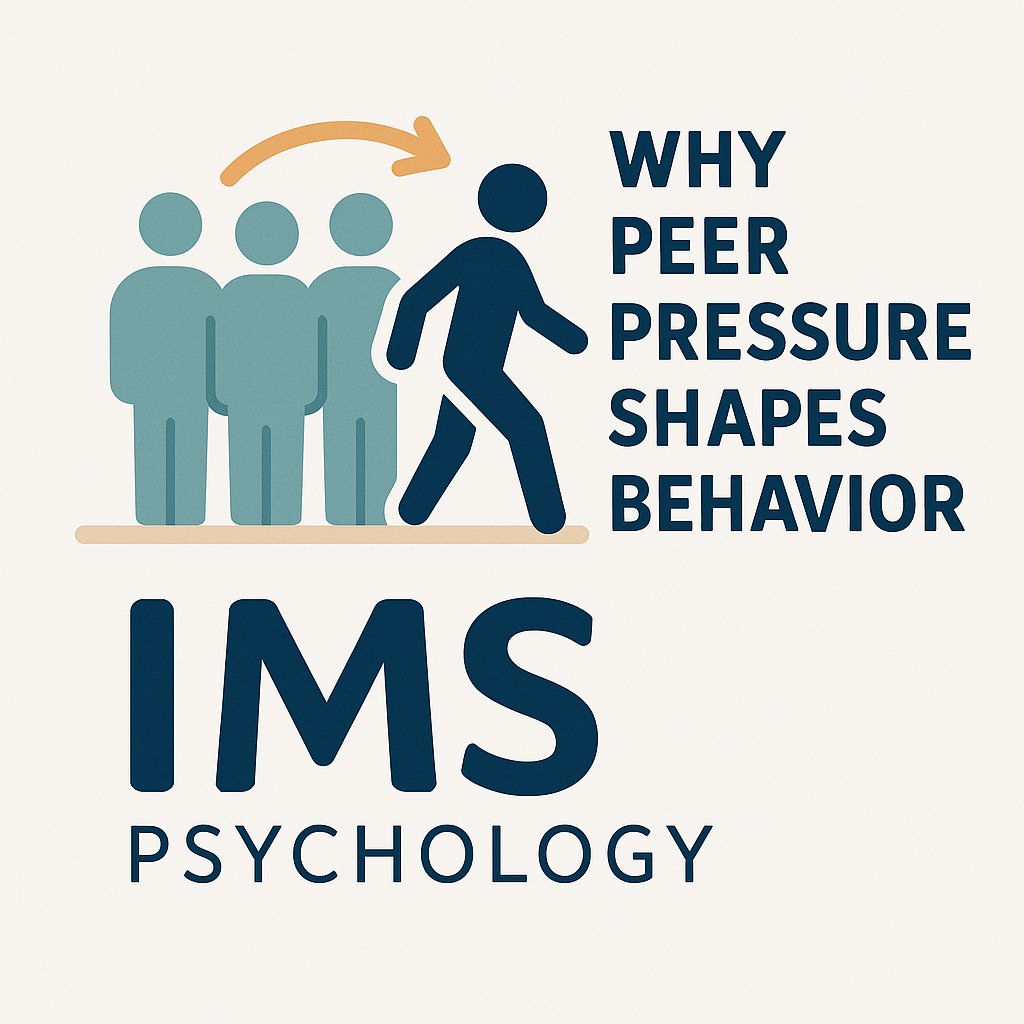
Why Peer Pressure Shapes Behavior
Share
Why Peer Pressure Shapes Behavior
Discover why peer pressure shapes behavior. Learn the psychology behind conformity, social influence, and how to resist unhealthy pressure.
Introduction: The Invisible Pull of Others
Why do people laugh at jokes they don’t find funny, buy brands they don’t really want, or go along with risky behaviors they know are wrong? The answer lies in peer pressure — the powerful influence that social groups have on our thoughts and actions.
While often viewed negatively, peer pressure isn’t always harmful. It can push us toward growth, achievement, and belonging. Understanding the psychology behind peer pressure helps us recognize its effects and make more conscious choices.
What Is Peer Pressure?
Peer pressure is the influence exerted by people within our social circle — friends, colleagues, classmates, or communities — that encourages us to change or conform to group norms.
It can be:
-
Direct: Someone explicitly telling you what to do.
-
Indirect: Feeling subtle pressure to fit in based on observation or group behavior.
-
Positive: Motivating healthier or more productive choices.
-
Negative: Encouraging harmful or risky behavior.
The Psychology of Peer Influence
1. The Need to Belong
Humans are social creatures. According to Maslow’s hierarchy of needs, belonging is a fundamental driver. Conforming to peers helps us feel accepted and reduces fear of rejection.
2. Conformity Studies
Psychologist Solomon Asch’s experiments in the 1950s showed people would give obviously wrong answers to simple questions just to align with the group. This illustrates the deep pull of social conformity.
3. Normative vs. Informational Influence
-
Normative influence: Conforming to be liked or accepted.
-
Informational influence: Conforming because we assume the group knows better.
4. Adolescent Brain Development
Teens are especially vulnerable to peer pressure. Research shows the reward system (striatum) is highly sensitive during adolescence, making social approval feel especially powerful.
5. Mirror Neurons and Social Learning
Neuroscience suggests we’re wired to imitate others. Mirror neurons activate when observing behavior, reinforcing the tendency to copy peer actions.
Positive Effects of Peer Pressure
-
Encourages studying or achieving higher grades.
-
Promotes healthier habits (exercise, balanced eating).
-
Inspires participation in prosocial activities like volunteering.
-
Reinforces identity and self-esteem through supportive communities.
Negative Effects of Peer Pressure
-
Increases risk-taking (substance use, reckless driving).
-
Leads to bullying or exclusionary behavior.
-
Creates stress, anxiety, or loss of individuality.
-
Encourages consumerism and conformity to unrealistic standards.
Signs You’re Experiencing Harmful Peer Pressure
-
Constantly comparing yourself to peers.
-
Doing things that go against your values.
-
Feeling anxious about rejection or judgment.
-
Struggling to say “no” even when uncomfortable.
How to Resist Unhealthy Peer Pressure
1. Strengthen Self-Awareness
Recognize when you’re acting from personal choice vs. social influence.
2. Build Assertiveness Skills
Practice saying “no” clearly and respectfully.
3. Find Supportive Peers
Surround yourself with people whose values align with yours.
4. Delay Decisions
Pausing before responding gives space to reflect rather than react.
5. Align with Core Values
Writing down your values helps anchor decisions when pressure arises.
Conclusion: Choosing Influence Wisely
Peer pressure is powerful because it taps into our deepest need for belonging. But with awareness and resilience, we can harness it for growth while resisting harmful influence.
If you’d like structured tools to build self-confidence and set healthy boundaries, explore our Peer Influence & Self-Confidence Workbooks at IMS Psychology.
written by,
Martin Rekowski (27.09.2025)
-
External link suggestion: APA – The Science of Social Influence
- https://www.apa.org/search?query=%20Science%20of%20Social%20Influence